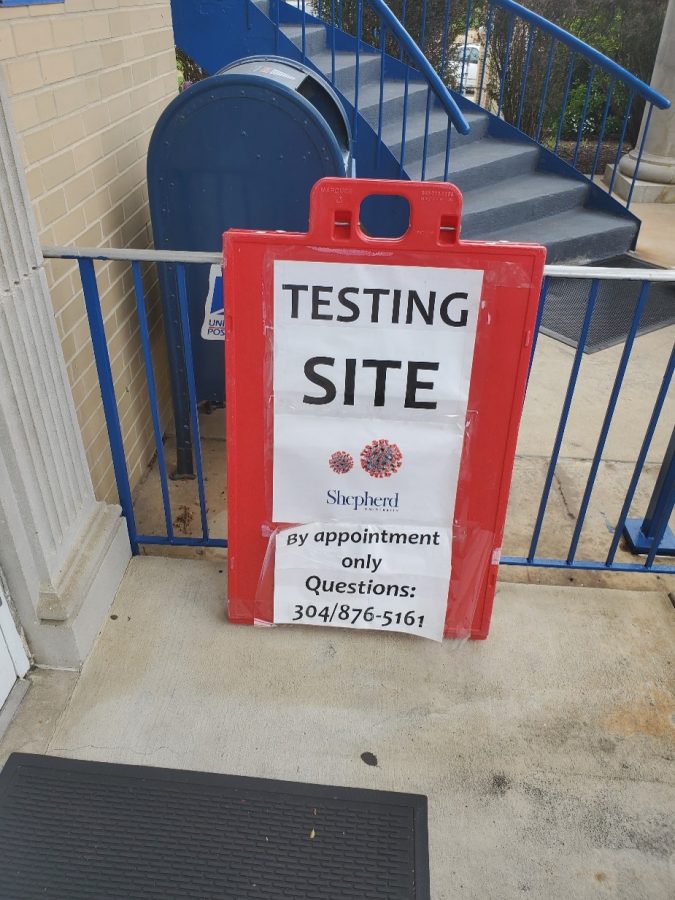SHEPHERDSTOWN, W.Va., – To combat the ongoing pandemic of COVID-19, Shepherd University has been administering random testing In the Storer Ball Room on the third floor of Rams Den. These tests are mandated by State Government to ensure cases of COVID-19 remain contained on campus
Testing began on October 12th and will continue every Monday throughout the duration of the semester.
Students and faculty will be selected at random and notified via email the Wednesday prior to each test day. Those selected will be expected to make an appointment before arriving for testing.
Rather than the nose swab tests all students were required to take at the start of the semester, the random tests will occur in the form of spit tests – a change chosen by the State of West Virginia for its ease of use and reliability.
Upon entering the facility, testers will be asked to sign in electronically to confirm their attendance. Testers will then be asked to fill out a short digital questionnaire before administering their test.
The test itself is a simple saliva test. Testers will provide their saliva by spitting into a tube provided on site, add the liquid preservative, and then shake for 5 seconds. Those selected will then exit through the far door by the stage.
Shepherd asks that individuals chosen for testing refrain from eating or drinking 30 minutes prior to testing.
Testing should take no longer than 15-20 minutes and will not cost nothing for those chosen.
Participants should expect results after 24-48 hours after testing vial email. Due to the reduced amount of tests being administered, individuals can expect their results whether they tested positive or not.
Shepherd is asking those who test positive to return home immediately and begin isolation
“Although the saliva tests take longer, they are more comfortable to take and the weekly tests should help to better monitor cases on campus,” said Shepherd student Sarah Hirsch.
Each week, up to 10 percent of the campus’ population are tested, which is roughly 250 people per week. To date, there have been 0 positive tests from the surveillance tests.

